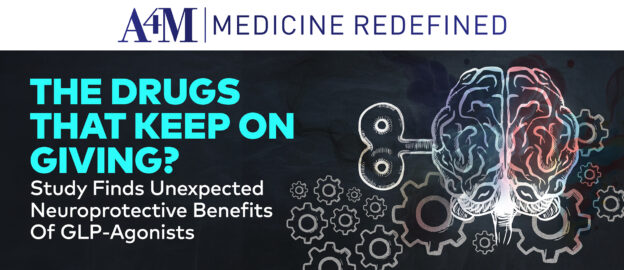The stark reality of widespread cognitive decline now affects nearly half the population, gradually eroding independence and quality of life. Recent research from NYU Langone has shattered previous expectations, revealing that the lifetime risk of dementia for those over 55 has escalated to a staggering 42%. This significant increase necessitates a fundamental reassessment of current understanding regarding aging and brain health.
As dementia cases in the U.S. are set to double by 2060, evidence-based strategies for preventing cognitive decline and promoting neural longevity become paramount. Healthcare practitioners must adapt and implement scientifically-validated interventions to protect patients’ cognitive function for the long term.
This pivotal moment in longevity medicine demands proactive and personalized care to determine the future health of millions. The clinical approach must extend beyond treating dementia as a condition of aging, with implementation of early interventions before symptom onset.
Read more: 42% and Rising: America’s Surging Dementia Risk Threatens LongevityThe New Landscape of Dementia Risk
Dementia represents more than a distant concern or inevitable part of aging – mounting evidence positions it as a pressing public health crisis demanding immediate attention. Current research reveals significantly higher neurodegeneration risk factors than previously documented, while multiple elements converge to create an alarming rise in projected cases.
This shift in understanding necessitates a fundamental change in healthcare approaches to brain health, from diagnosis to prevention. Several factors drive this escalation in dementia probability. Increased life expectancy correlates with higher rates of chronic health conditions like hypertension, diabetes, and obesity. These conditions, once primarily linked to cardiovascular disease, now stand as major contributors to cognitive decline. Poor circulation, metabolic dysfunction, and systemic inflammation further compound vulnerability, accelerating brain aging far earlier than expected. Most striking, dementia no longer remains confined to the elderly.
Clinical evidence indicates rising rates of neurodegeneration in middle-aged adults, particularly those with pre-existing health conditions. Once considered primarily a concern for those in their 70s or 80s, early-stage dementia now affects individuals in their 40s and 50s, often exacerbated by lifestyle choices, stress, and environmental factors. This paradigm shift establishes dementia as a comprehensive health consideration requiring attention throughout all life stages. While the aging population remains most vulnerable, accelerating susceptibility in younger adults necessitates reconsidering the timing and methodology of brain health interventions. Healthcare professionals must implement preventive measures before dementia symptoms manifest.
Early intervention is key, beginning with understanding that dementia prevention must start earlier in life, well before clinical signs of cognitive impairment appear. Clinical focus must prioritize identifying risk factors in patients in their 30s and 40s and implementing necessary lifestyle modifications to protect long-term brain health. Through the promotion of enhanced dietary practices, regular exercise, stress management protocols, and consistent medical monitoring, practitioners can support sustained cognitive function in patients through their later years.
Beyond Age: Multiple Pathways to Cognitive Decline
The pathogenesis of dementia involves intricate interactions between multiple biological systems. Recent scientific advances illuminate key modifiable risk factors addressable through clinical intervention. While genetic predisposition remains significant, research indicates prevention potential in 40% of cases through targeted therapeutic protocols.
Metabolic dysfunction stands as a primary contributor to neurodegeneration. Clinical evidence demonstrates strong correlations between insulin resistance, type 2 diabetes, and accelerated cognitive decline. Early intervention in metabolic health creates significant opportunities for risk reduction through precise clinical management.
Cardiovascular status plays an equally critical role in brain health preservation. Hypertension, dyslipidemia, and compromised circulation directly impact neurovascular function and cerebral oxygenation. The intimate connection between cardiac and cognitive health demands comprehensive cardiovascular screening and management protocols. Chronic inflammatory processes accelerate neural deterioration through multiple pathways.
Dietary factors and chronic stress trigger sustained inflammatory responses, leading to progressive neurodegeneration. Implementation of anti-inflammatory protocols through nutrition and stress management provides essential protective mechanisms. Environmental factors significantly influence cognitive health trajectories. Research demonstrates clear links between neurotoxin exposure, including air pollutants and heavy metals, and increased rates of brain aging. Environmental medicine screening and detoxification protocols offer additional protective measures for susceptible patients. This complex interplay of risk factors necessitates a comprehensive clinical approach.
Successful cognitive preservation requires thorough screening protocols combined with personalized intervention strategies. By proactively managing these modifiable factors, practitioners can significantly impact cognitive health trajectories in susceptible populations.
Early Intervention: The New Standard of Care
Traditional approaches to dementia management have centered on symptom control after neural deterioration becomes apparent. The newly established 42% lifetime probability demands a fundamental shift in clinical methodology. Contemporary research validates early detection and intervention protocols as optimal strategies for addressing cognitive decline before critical progression. Advanced biomarker analysis for neuroinflammation, insulin resistance, and vascular dysfunction enables precise identification of high-risk patients.
This clinical data supports the development of targeted treatment protocols addressing underlying pathological mechanisms. Evidence-based interventions encompass nutritional optimization, structured physical activity programs, stress reduction protocols, and pharmacological agents targeting specific neural biomarkers.
Implementing Strategic Clinical Solutions
Success in cognitive preservation requires a multi-layered clinical approach. Prevention protocols must begin decades before traditional intervention points. Comprehensive screening programs and targeted therapeutic interventions provide the foundation for optimal cognitive outcomes. Integration of emerging technologies and treatment modalities further enhances clinical efficacy.
Contemporary practitioners possess an expanding arsenal of evidence-based tools for cognitive protection. From advanced biomarker analysis to precision therapeutic protocols, these clinical resources enable unprecedented ability to influence cognitive health trajectories. Proper integration of these tools can significantly impact patient outcomes across all age demographics.
Cognitive Medicine: Looking Forward
The field of cognitive health stands at a critical juncture. Clinical decisions made today will influence health outcomes for decades. Healthcare practitioners who implement comprehensive prevention protocols position their practices – and their patients – for optimal long-term success. Modern understanding of dementia risk factors provides clear direction for clinical intervention; the future of cognitive medicine depends on decisive clinical action and unwavering commitment to therapeutic excellence.
Cognitive preservation represents one of the most significant opportunities in contemporary medicine. By embracing advanced prevention protocols and emerging therapeutic options, practitioners can dramatically influence patient outcomes. This commitment to clinical excellence in cognitive health will define the next generation of longevity medicine.



